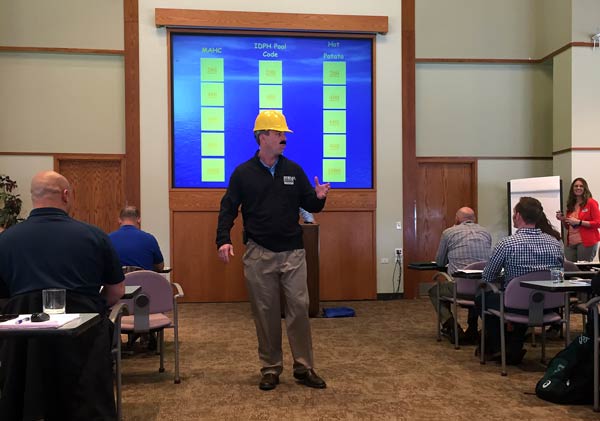
Managing Risk in Aquatics ProgramsMemorial day is rapidly approaching and soon beaches, swimming pools and water parks will be filled with patrons, and PDRMA members will be focused on managing aquatic risks.
At PDRMA’s April 15 Aquatics Risk Management Day, the focus was on how to prepare to respond to and manage critical incident investigations along with PDRMA’s support and how to handle the emotional aftermath of critical incidents. “Members know to contact PDRMA immediately following a critical incident so a proper investigation can take place, but the impact of an accidental drowning or near drowning on lifeguards can be severe and also needs to be addressed,” notes Bill Hooker, PDRMA Training Program Supervisor. “It’s important for managers to remember Wellness Solutions’ Employee Assistance Program (EAP) has resources to help everyone after a critical event.”
 Dealing with lifeguard emotions post-incident is a sensitive issue, according to presenter Paul Avram, MA, LCPC, and Account Manager at Workplace Solutions (WS). Dealing with lifeguard emotions post-incident is a sensitive issue, according to presenter Paul Avram, MA, LCPC, and Account Manager at Workplace Solutions (WS).
”Just as in any medical emergency, the first step is to seek professional help,” Avram advises. “The same is true for traumatic situations. It’s essential for managers to involve us (WS) as soon as possible. We help agency leaders plan how best to respond to the event, and generally go to the agency a day or two after it occurs. There’s a common misconception that counselors need to be on the scene immediately, but it generally takes between 24 and 48 hours for the shock to wear off and reality to set in.” It’s important to note that EAP counselors do not gather facts or participate in investigation efforts; their role is to help individuals cope with traumatic situations through counseling.
People aren’t ready to process what happened immediately, and once they are ready, there is no set timetable for how long it takes them to be ready to move on from the incident.
“It’s difficult to predict how any individual will react following a traumatic event,” Avram says. “Reactions vary widely depending on life experience, support systems, life stressors, emotional maturity and personal resilience.” Workplace Solutions also provides written materials about trauma to support managers, employees and their family members.
In addition to written materials, WS post-incident support includes on-site trauma response, counseling services, and toll-free, confidential 24/7/365 telephone support with master’s level clinicians to handle calls. Workplace Solutions can also help with individual short-term counseling or by working with insurers to arrange longer-term help.
Other event highlights included overviews of key aquatic risk management programs — lifeguard vision screening, aquatic audits, changes to PDRMA aquatic safety guidelines (LRN# 507), and day camp and outside group management. PDRMA Risk Management Consultant Jesse Kinsland covered aquatic risk management hot topics in a game of Jeopardy emceed by Kinsland as Alex Trebek. Three contestants competed (Scott Anthony – Wheeling Park District, Mike Eschensbach — Dundee Township Park District, Jeff Collier — Elk Grove Park District) with Collier winning the game.
NOTE:
You can contact EAP 24/7 at the new 877-215-6614 number or from the Workplace Solutions website.
PDRMA Resources:
PIPP:
|

